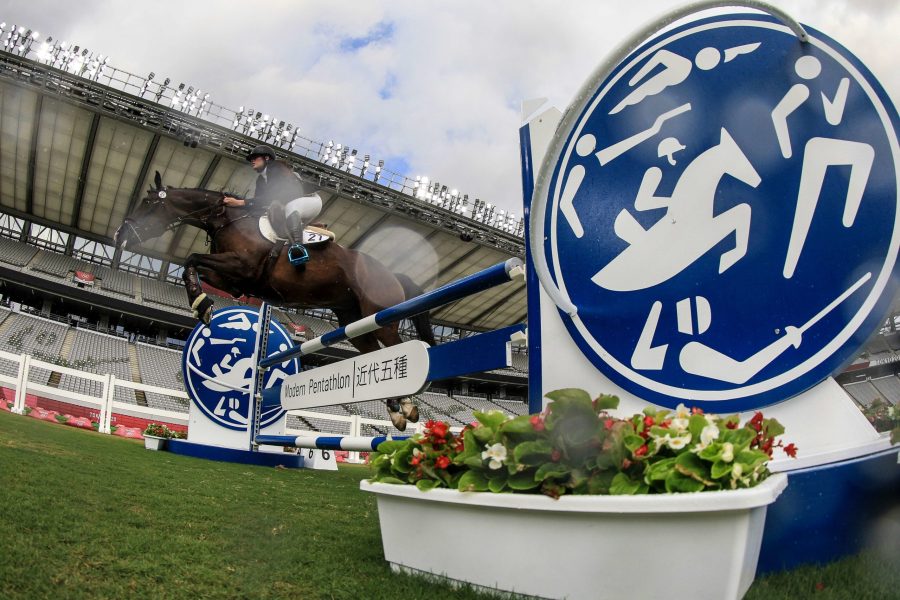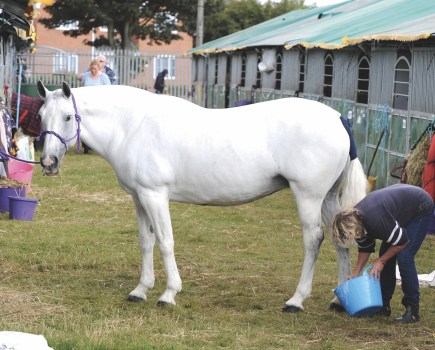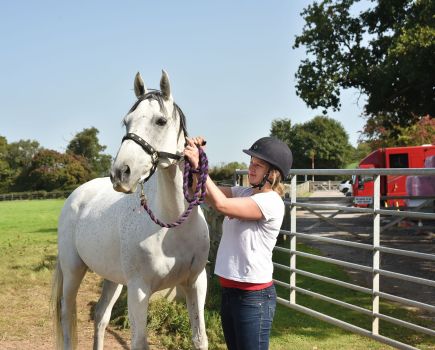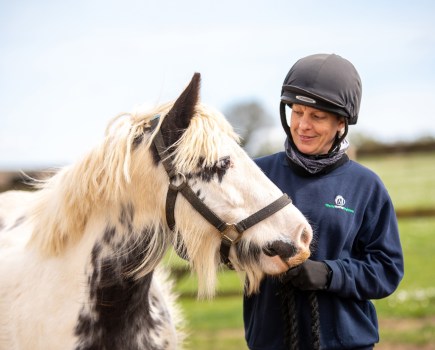Modern Pentathlon has been on the receiving end of social media backlash following the showjumping element of the contest at the Tokyo Olympic Games.
The sport’s governing body, Union Internationale de Pentathlon Moderne (UIPM), states the unpredictability of athletes drawing unfamiliar horses to ride is “part of the dramatic spectacle”. However, many viewers have aired concerns over the treatment of the horses used, from animal lovers to industry professionals.
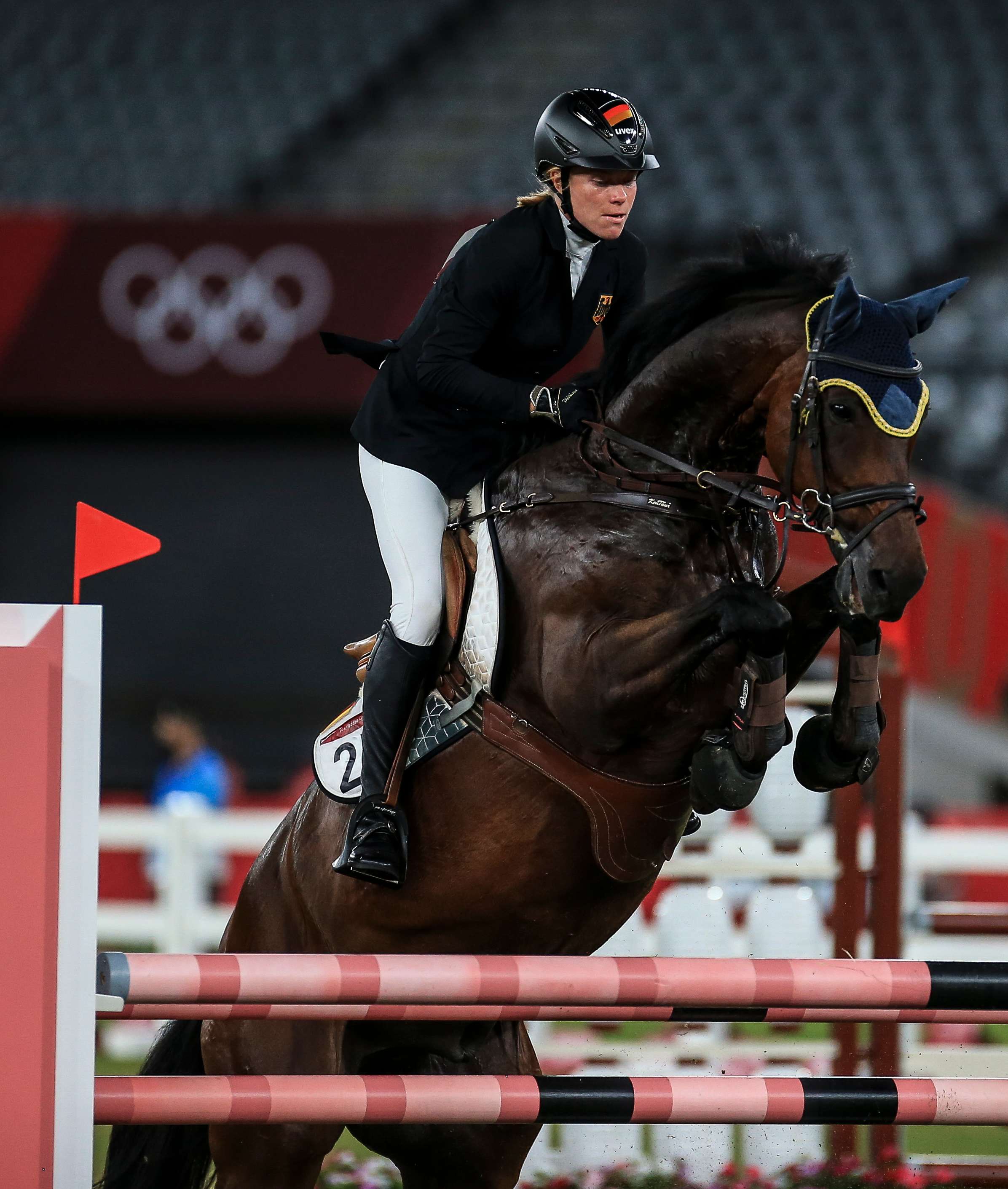
Annika Schleu riding Saint Boy © International Olympic Committee. Photographer Filip Komorous
Great Britain’s Kate French and Joseph Choong won gold medals in the individual men and women’s events. However, attention has centred around German athlete Annika Schleu, who had a significant lead when she entered the arena on Saint Boy in tears.
The pair jumped four fences before crashing into the fifth. The horse then refused to jump anymore and they were eliminated.
During their round, Schleu’s coach, Kim Raisner, appeared to strike the horse with her fist from outside the ring and was overheard telling the rider to “really hit” the horse.
Following a review, Raisner was dismissed from the Olympics after her actions were deemed to be in violation of the UIPM’s competition rules.
Schleu was not the first athlete to ride Saint Boy in the competition: Russian competitor Gulnaz Gubaydullina had also been eliminated on the same horse after accruing refusals.
Modern Pentathlon comprises of a 200-metre freestyle swim, fencing, showjumping up to 1.20m and a laser run.
Athletes draw an unfamiliar horse and are given 20 minutes to become familiar with the horse before their round, including jumping up to five practice fences in the warm up. Each horse is ridden by two riders.
‘A dramatic spectacle’
In total, six riders were eliminated from the showjumping round of the competition. In a statement, the UIPM acknowledged that “the number of refusals and falls [during the women’s competition] was slightly above average”.
The governing body added that “the unpredictability of athletes riding on unfamiliar drawn horses, with only 20 minutes to establish an understanding, is part of the dramatic spectacle that makes Modern Pentathlon unique and compelling”.
Many took to social media to share their concern for the horses, particularly Shleu and Gubaydullina’s mount Saint Boy.
The UIPM statement added that it “regrets the trauma suffered by Saint Boy in this high-profile incident” and has promised “a full review of the riding discipline” and will “reinforce the importance of horse welfare and athlete safety”.
Saint Boy was not used in the men’s competition. The UIPM shared two photos (below) of Saint Boy from his owners at the Minakuchi Riding Club following the event, which stated he was “in good health, although fatigued from competition”.
‘A disconnect’
Dr David Marlin, an equine scientist who attended the Tokyo Olympics as an official, was quick to identify the “disconnect of Modern Pentathlon from equestrianism and the FEI”.
“The Modern Pentathlon took place at 5pm when still hot, when for pure jumping and dressage it was at 7pm when cooler,” he said in a Facebook post.
Amongst other points, the scientist also highlighted that athletes are permitted to carry on after a fall of horse and rider in Modern Pentathlon. This is not allowed under FEI rules.
Five-time Olympic eventer Ingrid Klimke also shared her thoughts online, deeming it “not possible” to jump a course in a competitive environment like the Olympics after riding a horse for only 20 minutes.
“Horses are highly sensitive animals that immediately feel every feeling of the rider, in this case also the high tension and the unusual atmosphere,” she said.
“If you have grown together as a horse rider over a couple of years, you know each other very well and can overcome such situations together.
“The set of rules of Modern Pentathlon need to be reconsidered urgently,” she added.
‘Disgraceful’
Melanie Watson, an equine behaviour consultant and trainer, added that the use of horses in the Modern Pentathlon is now a “huge subject of concern world wide”.
“The riders have no emotional nor financial investment in their horse and they will do whatever it takes to force it to comply. We witnessed whipping, spurring at its ribs and that tender mouth being ragged at over and over again,” she said.
“As for the coach [striking the horse] that is a whole new disgraceful level which totally put into perspective just how unimportant that horse was in the greater scheme of things.”
According to the UIPM, changes to the format are already in the pipeline, with a new format coming into force in next year, which is in time for the Paris 2024 Olympic cycle.
It said horse welfare and athlete safety is “at the centre of this process”.
Photos: © International Olympic Committee. Photographer Filip Komorous
Look what’s inside the latest issue of Your Horse

